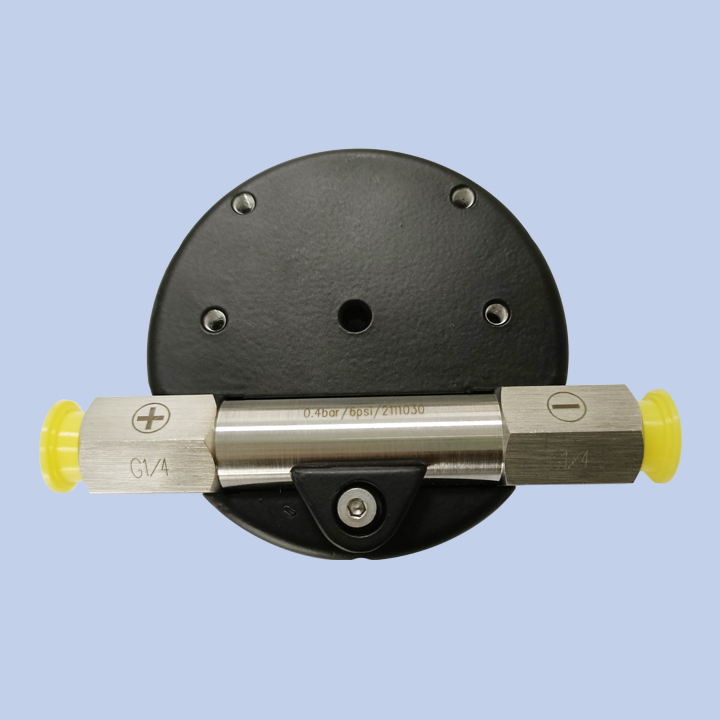
dec . 03, 2024 16:36 Back to list
diaphragm material pressure gauge manufacturers
Understanding Diaphragm Materials in Pressure Gauge Manufacturing
Pressure gauges are essential instruments used in various industries to measure the pressure of gases and liquids. One of the critical components of these gauges is the diaphragm, a flexible membrane that reacts to pressure changes. The choice of diaphragm material directly influences the performance, accuracy, and longevity of the pressure gauge. In this article, we will explore the different diaphragm materials used in pressure gauge manufacturing, their advantages, and the leading manufacturers in the industry.
Importance of Diaphragm Materials
The diaphragm's primary function is to sense pressure changes and convert them into a readable output. The choice of material for the diaphragm is crucial, as it must withstand different environmental factors, including temperature, humidity, corrosive substances, and pressure ranges. A well-designed diaphragm improves the gauge's responsiveness and can significantly extend its lifespan.
Common Diaphragm Materials
1. Stainless Steel Stainless steel is one of the most widely used materials for diaphragm construction due to its excellent mechanical properties, corrosion resistance, and durability. It is particularly suitable for high-pressure and high-temperature applications. Manufacturers often use different grades, such as 304 and 316, depending on the specific requirements of the application.
2. Borosilicate Glass Although not as common as stainless steel, borosilicate glass is sometimes used for specific applications where chemical resistance is paramount. This material can withstand extreme temperature variations, making it ideal for certain laboratory and pharmaceutical uses.
3. Elastomers (e.g., Nitrile, Viton) Elastomeric diaphragms are often used in applications where flexibility and compliance are crucial. These materials can handle a wider range of pressures and are often employed in applications involving aggressive fluids. However, elastomers may have limitations in temperature resistance compared to metals.
4. Teflon (PTFE) Teflon is highly favored for its exceptional chemical resistance, making it ideal for corrosive media. It is suitable for applications in the chemical and pharmaceutical industries. However, Teflon diaphragms may have limitations in terms of mechanical strength and pressure ratings.
5. Silicone Silicone diaphragms are used in applications requiring high flexibility and low temperature resistance. While not suitable for high-pressure environments, silicone is often found in applications involving food processing and sensitive instrumentation due to its low toxicity.
Advantages of Different Materials
- Stainless Steel The corrosion resistance of stainless steel makes it highly versatile, suitable for both water and oil applications. Its strength ensures that it can handle high-pressure situations without deforming.
diaphragm material pressure gauge manufacturers

- Borosilicate Glass Offers excellent thermal stability and is inert to many chemicals, making it a safe choice in sensitive applications.
- Elastomers Provide superior flexibility, allowing for better performance in dynamic pressure applications. They can easily accommodate changes in pressure without compromising accuracy.
- Teflon Its chemical resistance protects the gauge from aggressive fluids, thereby preserving its accuracy and extending its life.
- Silicone Known for its excellent flexibility and resilience, silicone is often chosen for applications requiring a soft touch or lower pressure settings.
Leading Manufacturers in the Market
There are several key manufacturers recognized for their quality and innovation in diaphragm pressure gauge technology. Some of the prominent names include
- Wika A global leader in manufacturing pressure gauges, Wika offers a wide range of diaphragm materials and configurations tailored to specific industry needs.
- Ashcroft With a reputation for precision measurement solutions, Ashcroft provides high-quality diaphragm gauges designed for various industrial applications.
- Honeywell Known for its technological advancements, Honeywell has a diverse product line that includes pressure gauges featuring various diaphragm materials.
- GROVE Specialized in producing diaphragm pressure gauges, GROVE focuses on delivering custom solutions for niche applications.
Conclusion
Selecting the right diaphragm material is vital for achieving optimal performance in pressure gauges. The choice depends on the specific application, environmental conditions, and required durability. Leading manufacturers like Wika, Ashcroft, Honeywell, and GROVE provide a diverse range of options to meet industry demands, ensuring that businesses get accurate and reliable pressure measurements no matter the environment. Understanding the different materials and their properties is essential for anyone involved in the procurement or design of pressure measurement solutions.
-
High-Precision 5 Valve Manifold Differential Pressure Gauge Suppliers
NewsApr.29,2025
-
High-Precision Diaphragm Vacuum Pressure Gauges Manufacturers & Quotes
NewsApr.29,2025
-
Omega Differential Pressure Gauges High Accuracy & Durability
NewsApr.28,2025
-
Low Pressure Differential Pressure Gauges Precision Solutions & Quotes
NewsApr.28,2025
-
Digital Diaphragm Pressure Gaauge Precision Measurement & OEM Quotes
NewsApr.28,2025
-
Differential Pressure Gauge China Price High-Accuracy & Best Quotes
NewsApr.28,2025
